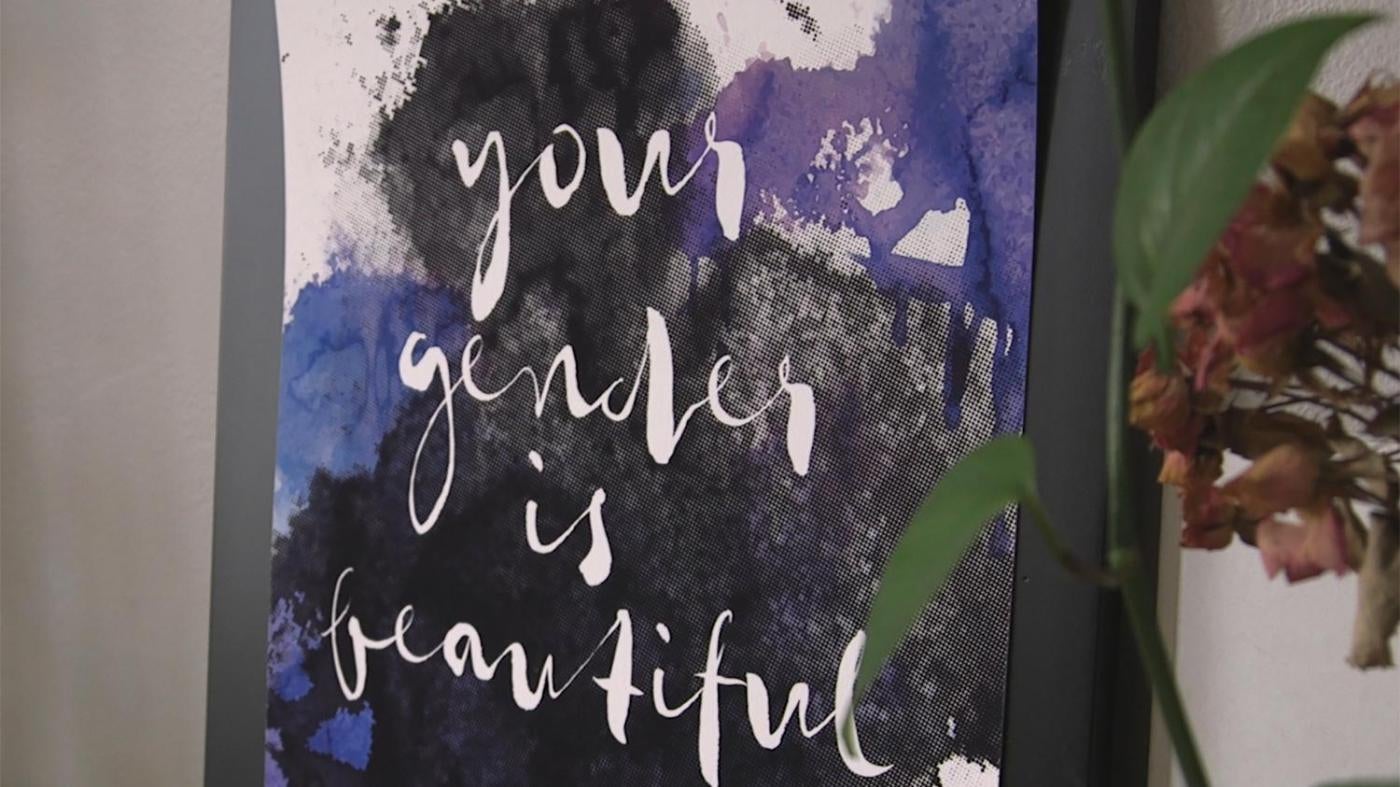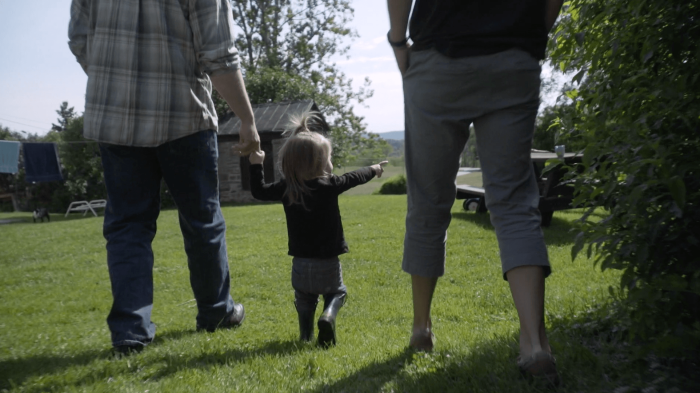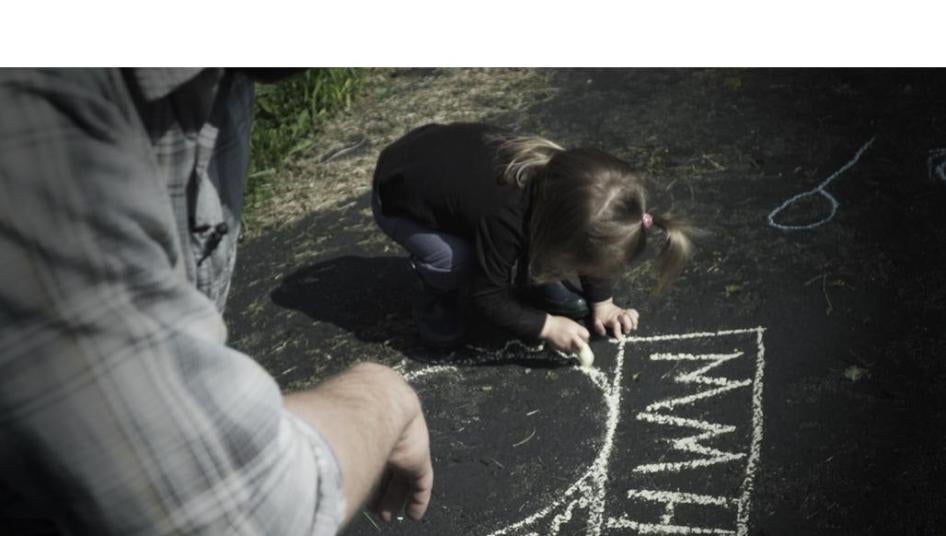What are some of the misconceptions around being born intersex?
Unfortunately, in our society we’re still at a point where most people don’t know the basic facts about being intersex. People think it is very rare, but really, up to two percent of the population are born with intersex traits. And there are well over 30 to 40 intersex variations, which is something a lot of people don’t realize.
What do people who are intersex deal with because of this lack of understanding?
People are told not to discuss being intersex. That makes intersex children feel almost freakish, and this feeling is carried into adulthood.
Even with the best interests of the child in mind, parents and doctors will often relay the message to children that they are wrong and different and something to be fixed. Often that fix includes irreversible medical intervention really early in life, including surgery. This attitude creates a feeling of stigma and shame and affects people deeply. We see physical harm from the surgery, but also psychological harm because of the intervention. The fact that you’re told by society that you don’t belong and that you’re a mistake or your body is a mistake – most intersex people really struggle with this their whole lives.
What is your group calling for?
What we want is a moratorium on surgery if the person is too young to understand and to consent.
So, we want doctors to shift their attention away from “fixing” babies and young children and instead focus on adolescents, young adults, and adults who may have decided for themselves they want surgery – that is where the help is needed. We just want the focus to be shifted to consenting adults.
What do some doctors tell parents when they are trying to make these decisions?
One thing I’ll never forget is a parent who told me that, when they were asking questions and were confused about why the surgery had to happen right away, the doctor got frustrated and said, “Well if you don’t do this surgery, frankly it’s akin to child abuse.” That’s probably the worst thing I’ve heard. More often, it is a tone or an attitude that the doctors send out in the way they talk to parents – that suggests the same thing.
There’s an established power dynamic between doctors and patients. In these situations, with your children involved, you go in to a bit of a panic mode and you are relying on this doctor to tell you how to help your child.
What needs to change in this process to help parents?
Doctors need to frame it in a different way, so parents know there is no urgency. Parents should also be given the full spectrum of choices, including waiting for a period of time, talking to other parents who have gone through this with their children, or connecting with adults who have the same intersex traits as the baby. Then, they can gather information for themselves to help them help their child make a decision.
What’s happening in too many cases is that doctors are telling parents, “Well it is really better to do this kind of surgery when they are young because they won’t remember it, there will be less trauma, and they won’t have any time that they’ll remember when their body looked different so they won’t be made fun of or discriminated against by their peers.” These aren’t medical reasons, they are all sociological, they start creating a “social emergency” and it scares the parents. These fears also aren’t grounded in any kind of data – they’re just hypotheses.
But it isn’t a medical emergency or a social emergency. It is just a child with a different type of body.
Also, parents should know that some of these surgeries are deemed akin to torture by United Nations rights experts when done without informed consent.
This all must have an impact on how intersex people view doctors.
Absolutely. For those who have had surgery and maybe now need doctors for hormone replacement therapy – which you need for the rest of your life after having had healthy gonads removed – there is a reliance on the medical community. You need to access doctors to stay healthy, but for lots of intersex people that is very difficult.
A lot of intersex people who have been lied to as children and had surgeries done to them without their consent develop a mistrust of doctors. I’ve heard intersex people say they are avoiding the doctor because they just can’t cope with the stress of it.
The intersex community is not saying doctors are bad. What we need are doctors we can fully trust and who will explain things so we can understand and consent to procedures.
We need the doctors who don’t do this to tell the rest of their profession that these surgeries shouldn’t be done.
We shouldn’t be taking away a child’s bodily autonomy just because they don’t fit into our idea of normal.
Do intersex adults sometimes not know what surgery they underwent as children?
In the past decade that has been less common.
That said, there’s so many of us walking around who were lied to, or were not told for a really long time, or found out accidentally. This was the case of many of us in my generation. My story is that I didn’t find out until nine years ago, when I was 41. I knew I’d had surgery. I signed a form when I was 15, along with my dad, but we didn’t know what it was for. We thought it was a hysterectomy and cancerous ovaries being removed. That is a pretty common story for people around my age and a little bit younger – that intersex people get their medical records and realize they were lied to, often by their parents as well as the medical community.
What have people told you about the effects of these surgeries?
It does sound dramatic, but it is quite common, especially for people who have had medical intervention, to experience PTSD as a result.
There are also more subtle things like having a pattern of disassociation in your life, difficulties in relationships, particularly with sexual intimacy and trust. There is also the physical scarring and nerve damage that leads to loss of sensation.
This story has just stuck with me. It was a young person who is now in her 20s. When she was 18 months old, her parents took her to the doctor and it was determined her vagina was too small. The recommendation was a surgery to create a vagina.
The parents took the surgeon’s advice but then were surprised to learn only after the surgery was completed that they would be required to dilate their child’s vagina regularly afterward. What happened was that the parents would dilate the child, with all good intentions, but they would physically hold her down. You can just imagine the trauma from that. One of the results was this child became anorexic – it was about gaining control over her body.
Happily, recently she’s been doing great and is starting to move past the trauma and speak out about it as an advocate, and her mom has been very supportive.
There’s a lot to say about parents accepting and being comfortable with their child’s non-binary body.
What do you think is the key to acceptance for intersex people?
The LGBT community was the first to embrace intersex issues, and it is opening a lot of doors for us, but this is truly a broader issue. We’d like people to understand that really at its core this is a children’s rights issue. It is also about health and reproductive rights, because these operations can lead to infertility.
We’re doing so much to connect and empower intersex people in their teens and 20s. Even though intersex isn’t a sexual orientation or a gender identity, we have many similarities – like discrimination based on sex and bodies – with the LGBT movement, and that movement has really paved the way for acceptance. There’s a long way to go, but it really has made a difference to young people and how accepting they are. It gives me a lot of hope.
This interview has been edited and condensed.






